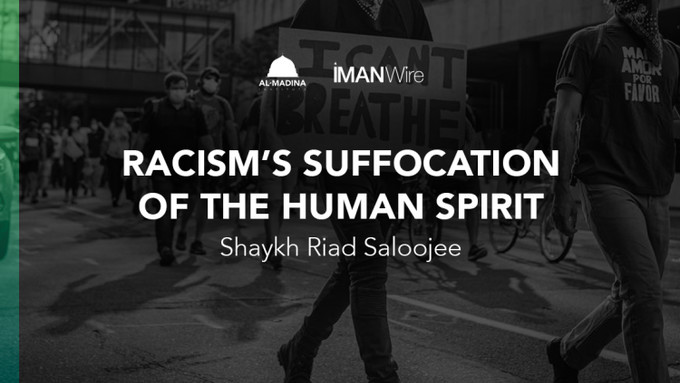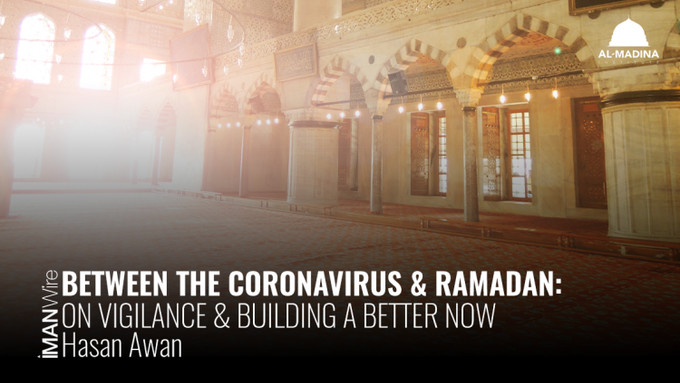Building Stronger Muslim Families
The word ‘family’ according to its Latin root, familia, means a household or servants. A similar meaning is implied by the Arabic word, ahl (family; house; household, people belonging to a community or locality). There are actually three Arabic words commonly used to express the meaning of family: ahl, ‘a’ila, and usra. The first word (ahl) underscores the fact that the members of a given family share a domicile. The second word (‘a’ila) highlights the fact that members of the family act in the service of one another fulfilling one another’s needs. What deepens the notion of servicing one another’s needs is the fact that a cognate of ‘a’ila is ‘ayla (need, poverty) and another is ‘iyal (dependents). As for the third word (usra), it originally was applied to male agnate relatives who were responsible for protecting the family. They were the glue which held the family together in tight solidarity with one another. A cognate of usra is the word asir, captive. It is as if no matter how much one may develop disdain for or be angered by a family member, one is unable to cut ties with them. It is as if a family member is held captive to his/her relatives.
When it comes to the subject of building a strong(er) Muslim family, it is important that we not only value what it means ‘to share a home for the fulfillment of needs in a state of relative captivity.’ We must also value the meaning of what it means to be “Muslim” in a Muslim family. The Prophet―peace and blessings upon him―said that, “The Muslim is the one from whom other Muslims are safe from his hand and tongue” (sahih). In the oft-cited Qur’anic verse, “The believers are but brothers” (Q 49:10), instead of using the word “ikhwan” (brothers), Allah uses the word “ikhwa” which is typically used to characterize brothers and sisters who are tied together by blood. It’s a powerful metaphor meant to convey the message that the bonds of faith are stronger than blood ties with Allah, and one’s true family is the family of believers. For this reason, when Noah―peace be upon him―pleaded for his son saying: “My Lord! Verily my son is from my family” (Q 11:45), Allah responded, “He is not from your family. He is, rather, a deed unrighteous” (Q 11:46); “So do not address me concerning those guilty of wrong. They shall be drowned” (Q 11:37).
The story of Noah―among so many others in the Qur’an―teaches us the first important lesson of good parenting: “Verily, you cannot guide those whom you love. Allah, however, guides whomever He pleases” (Q 28:56). Though it is a responsibility to provide the best religious and spiritual education available to our children, there is no guarantee they will succeed in this life or the life to come―may Allah spare us and them from such a fate. The stories of family and relatives throughout the Qur’an reinforce this fact. Adam―peace upon him―could not prevent Cain from murdering Abel. Noah―peace upon him―could not deter his son and wife from turning away from God. In spite of Abraham’s―peace upon him―great intelligence, he could not convince his father that worshipping the same idols he sold was an act in futility. Despite his special status, Jacob―peace upon him―could not ensure the safety of Joseph―peace upon him―from the spite of his own brothers.
If faith demands a greater commitment to our believing family members than those without faith, one must keep in mind that even a believer’s faith can be stricken with frailty. Allah instructs us, “O children of Adam! Let not Satan seduce you in the way he was able to expel your parents from the Garden: stripping away from them their garments in order to show them their shame. Verily, he and his minions see you from a place you see them not” (Q 7:27). Such a warning from the Creator reminds us that we are all (fathers, mothers, and children) susceptible to the same pressures because of our nature. If that is so, we must be in touch with that nature constantly.
Imam Abu Hamid al-Ghazali described the human being as a creature of bestial and angelic hybridity. Overindulgence in lower passions will lead us to becoming the “lowest of the low” and “…like cattle. Nay! They are even more lost” (Q 25:44). However, a sufficient amount of reinforcement of our mental and rational faculties can help us share in angelic bliss. Since the carnal passions are the most primordial, they gain a sort of mastery over the human disposition first. But, once the intellective powers begin to develop and augment, the human must continue to strengthen them throughout his/her life if one ever hopes to become truly free of the influence and force of the former.
With this sort of knowledge in hand, families can hopefully begin to address, comprehend or even tolerate the shortcomings of one another while continuing to “cooperate upon goodwill and piety” (Q 5:2). Vice, in Al-Ghazali’s view, is the result of two primary factors: 1) heedlessness (ghafla); and 2) uncontrollable passion (ghalaba al-shahwa). In order to thwart them, he recommends: 1) the pursuit of knowledge (‘ilm); and 2) restraint and endurance (sabr). In other words, as a family seeking closeness to Allah, it is important that we never abandon the pursuit of deeper knowledge of the divine and ourselves, and that we help one another to maintain discipline.
The Qur’an tells us, “O you who believe! Verily there is among your spouses and children an enemy. So, guard against them” (Q 64:14). We can clearly see the truth of this when reflecting upon the lives of Allah’s aforementioned emissaries. We constantly ask Allah, “Guide us on the straight path” (Q 1:5). Do we truly understand that this path is “…the path of those upon whom You have bestowed Your favor” (Q 1:6)? Do we truly grasp that those people are the ones about whom the Prophet Muhammad said, “The people with the greatest tribulation are the prophets; then those next them in likeness, followed by those next to them in likeness”? If that is so, the challenges of family life must be understood as anything but easy, in addition to any other tribulation which may befall us in light of being chosen by Allah for this special path. Reflect upon the story of Jonah. If Jonah’s tests highlight anything about God’s beloved it is that divine love doesn’t always come in the form of gifts, comfort, safety, and tranquility.
The Prophet Muhammad taught us, “The similitude of the believers in their mutual affection, compassion, and sympathy is as that of a single body. If one part falls ill, the rest responds with fever and sleeplessness.” This among the many other teachings of Islamic fraternity must not only be applied in the brother’s area of the mosque. These lessons must begin right at home. If my wife and children are also believers, they have a greater right to my kindness, consideration, and support than those who are not family members. The Prophet said, “A believing man does not despise a believing woman. If he dislikes some behavior of hers, he finds satisfaction with another.”
While the foregoing teaches us that family can be a challenge, especially when members of the family begin to pose a challenge to our faith and spiritual development, it is important to remember that while there may be “…an enemy” among them, Allah instructs us immediately after, “But if you pardon, overlook, and forgive, then verily Allah is forgiving merciful. Your wealth and children are nothing more than a trial, and with Allah there is an enormous reward” (Q 64:15). In conclusion, the strongest “Muslim” families are those that are committed to faith, learning, spiritual improvement, compassion, understanding, and forgiveness. May Allah grace us to live upon faith, die upon faith, and reunite in the heavenly abode with our loved ones. “Lord! Please grant us comfort and relief from our spouses and progeny, and make us exemplars for the God-conscious” (Q 25:74). Amin.
Life & Culture Related Articles

Shaykh Seraj Hendricks: Obituary
An internationally recognised Islamic scholar, who saw spirituality, justice, and knowledge as integral to an authentic religious existence. Shaykh Seraj Hendricks, who passed away on the 9th of July 2020 at the age of 64, was a scholar of international repute, able to communicate and engage on the level of state leaders, religious scholars and the broader public.

Racism’s Suffocation of the Human Spirit
I can’t breathe. George Floyd’s last words, conveying, verbatim, Eric Garner’s last words, with echoes through a long chain of souls – Breonna Taylor, Michael Brown, Walter Scott, Freddie Grey, Jamar Clark, Alton Sterling, Stephon Clark and Botham Jean – is a testamentary call that should pierce every Muslim’s mind and heart.

Between the Coronavirus & Ramadan: On Vigilance & Building a Better Now
I pray that, as we continue to lovingly welcome and vigilantly discover the blessings inherent in Ramadan upon us, we awaken to all the moments and especially the moment that Allah has chosen to place us. A quotation from Charles Dickens, the opening to one of his novels, is worth reflecting on: “It was the best of times, it was the worst of times.”